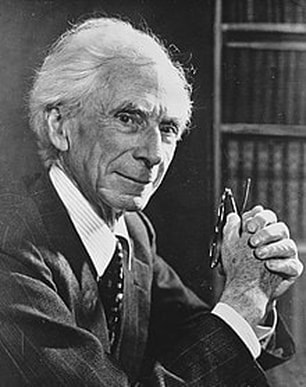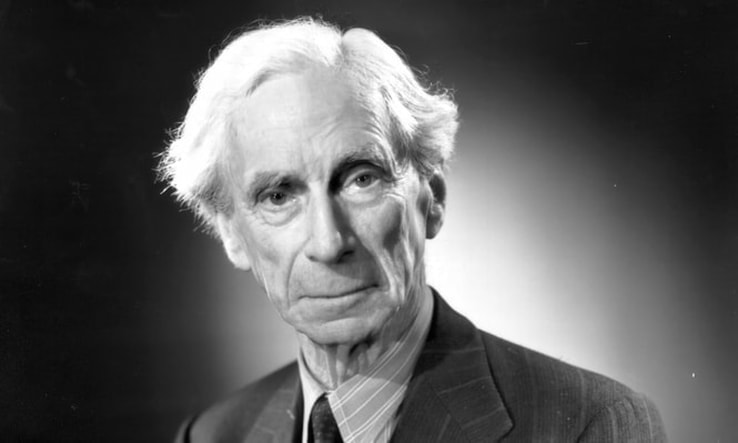|
The year 2022 will see the 102nd anniversary of Bertrand Russell’s book The Practice and Theory of Bolshevism. Russell was one the twentieth century’s greatest philosophers and keenest social critics. The observations Russell made in Russia just three years after the Revolution, his impressions of Lenin (whom he interviewed) and Trotsky (no mention of Stalin), and his assessments of the future prospects of communism still make fascinating reading and since the collapse of Soviet communism seem eerily prescient. Russell has divided his book into two parts “The Present Condition of Russia” and “Bolshevik Theory.” The first part will not concern us as much as the second as it is really outdated as regards the “present condition” of Russia, although there are some observations made that are still of interest. The second is a general consideration of the philosophical outlook of Bolshevism and that still has lessons for today. I am posting this article in ten parts and will begin with the prefaces. Russell reissued the book in 1948 and in a brief preface declared that in all “major respects” he had the same view of Russian Communism as he had in 1920. I doubt if that was actually so as he says many very favorable things about the Bolsheviks in 1920 and holds contradictory attitudes about them. I think he was actually much more negative in 1948 than in 1920. Let’s begin with the original 1920 preface which was retained in the 1948 republication. Russell says Bolshevism is a radically new political movement which is a combination “of characteristics of the French Revolution with those of the rise of Islam.” This allusion to Islam will crop up again later. I note it because after the “defeat” of Communism it is radical Islam that is being touted as one of the next big threats that the US has to confront (along with Russia and China and anyone who doesn’t kowtow to U.S. hegemony). Russell says the most important fact about the Russian Revolution is the “attempt to realize socialism.” Russell is dubious about this possibility succeeding and, as we know, it ultimately failed. In the book Russell has a lot to say about this which many may still find relevant. Russell does say that "Bolshevism deserves the gratitude and admiration of all the progressive part of mankind." There are two reasons for this. First, Bolshevism stirred the hopes of humanity in such a way as to lay the foundations for the future building of socialism. Second, the future creation of a socialist world would be "improbable" but for the "splendid attempt " of the Bolsheviks. Russell uses the term "splendid attempt" because he does not think the Bolsheviks will ultimately succeed in creating a stable or desirable form of socialism in Russia. He thinks this is because Bolshevism is "an impatient philosophy" which, in Russia, as elsewhere, is attempting to create a new world order "without sufficient preparation in the opinions and feelings of ordinary men and women." Russell saw three possible trajectories that the Russia of 1920 would be faced with due to the hostility of the capitalist world. The first was DEFEAT by the capitalists, the second was VICTORY by the Bolsheviks but at the cost of "a complete loss of their ideals" followed by a "Napoleonic"regime and third, "a prolonged world war" which would destroy civilization. Well, he saw something through a glass darkly. The major capitalist assault to defeat the Bolsheviks was repelled (the Nazis) but the effort both in preparing for it and executing it did lead to a regime which many think sullied the ideals for which it stood and which history rather refers to as "Stalinist" than "Napoleonic." The strain of the second world war and cold war did finally defeat "Bolshevism" (now in quotes) and led to the demise not of civilization itself but of the new socialist civilization that the Russians had dreamed of founding. Nevertheless, Russell's views indicate that the attempt of the Bolsheviks was a noble one which will inspire future generations to struggle on for the construction of a socialist world. It is worth noting that Russell considers himself to be ideologically a political Bolshevik himself! "I criticize them only when their methods seem to involve a departure from their own ideals," he declares. This implies that Russell supports the Bolshevik ideal. This is note worthy because this book is touted as an anti-communist work! But while he shares the political idealism of Bolshevism, there is another side to it that he vehemently rejects. He thinks that they act like religious fanatics (fundamentalists) in the way they defend their basic philosophical ideals. He gives their adherence to philosophic materialism as an example. Russell says materialism "may be true" but the dogmatic way Bolsheviks proclaim it is off putting to one who thinks that it cannot be scientifically proven to be true. He writes: "This habit of militant certainty about objectively doubtful matters is one from which, since the Renaissance, the world has been gradually emerging, into that temper of constructive and fruitful skepticism which constitutes the scientific outlook." But no sooner does he say this than he basically takes it back and mitigates the charges against the Bolsheviks on this count. Speaking of the capitalist rulers in Europe and America in 1920 Russell says "there is no depth of cruelty, perfidy or brutality" that they would shrink from in order to protect capitalism and if the Bolsheviks act like religious fanatics it is the actions of the capitalist powers that "are the prime sources of the resultant evil." If that is what it takes to get rid of capitalism Russell seems to say "so be it." Anyway he hopes that when capitalism falls the fanaticism of the communists will fade away "as other fanaticisms have faded in the past." Unlike Marx who said he did not necessarily hold individuals guilty for the roles they played in the economic history of mankind, Russell is full of moral indignation when it comes to the capitalist rulers of his day. "The present holders of power are evil men, and the present manner of life is doomed." Let us hope this present state of capitalist decay is the heralding of that long awaited doom. Russell ends his preface by thanking the Russian communists "for the perfect freedom which they allowed me in my investigations." Russell had gone to Russia as part of a British delegation to assess the revolutionary situation (May-June 1920). It is extraordinary that he would have been on an officially approved delegation considering that he thought his own government was made up of "evil men." Part Two coming up. AuthorThomas Riggins is a retired philosophy teacher (NYU, The New School of Social Research, among others) who received a PhD from the CUNY Graduate Center (1983). He has been active in the civil rights and peace movements since the 1960s when he was chairman of the Young People's Socialist League at Florida State University and also worked for CORE in voter registration in north Florida (Leon County). He has written for many online publications such as People's World and Political Affairs where he was an associate editor. He also served on the board of the Bertrand Russell Society and was president of the Corliss Lamont chapter in New York City of the American Humanist Association. Archives
0 Comments
Leave a Reply. |
Details
Archives
May 2022
Categories |


 RSS Feed
RSS Feed